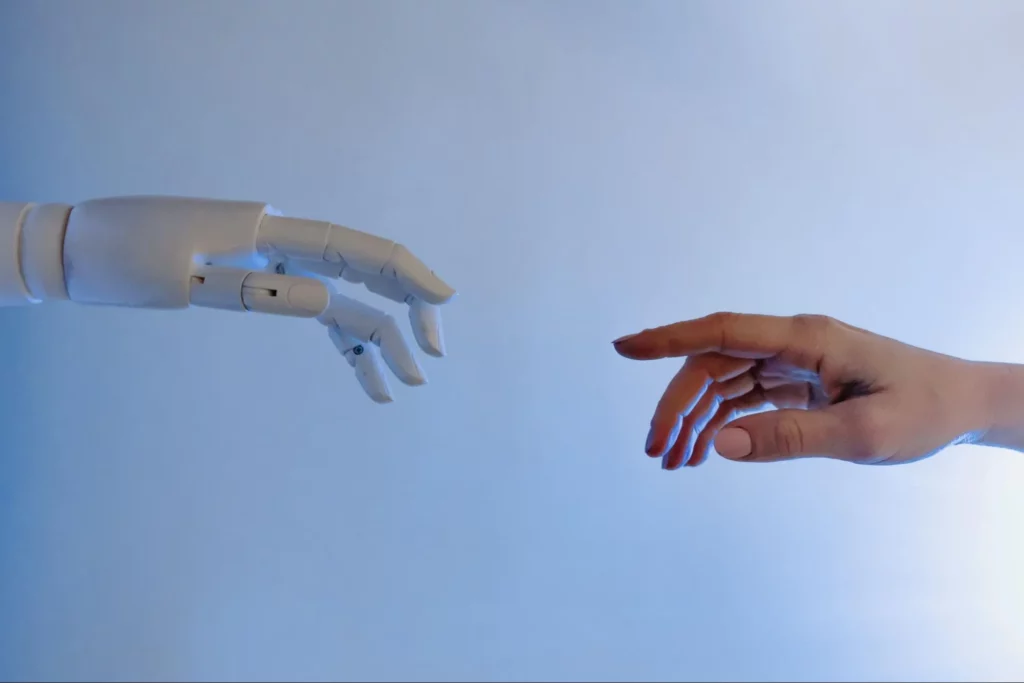What Misconceptions Do People Have About AI?
From “AI and Machine Learning Are the Same” to “AI Will Outsmart Humans and Become Autonomous”, here are 13 answers to the question, “What are the biggest misconceptions people still have about AI?”
- “AI and Machine Learning Are the Same”
- “AI Will Develop Consciousness”
- “AI Is Capable of New Ideas”
- “It Will Replace the Need for Human Employment”
- “AI Will Take Over Everything”
- “AI Always Makes the Best Decisions”
- “AI Is a Replacement for Human Content Writers”
- “AI Will Take More Than It Gives”
- “AI Is Only for Tech Companies”
- “AI Has an Aim”
- “AI Is Fully Sufficient and Not Collaborative”
- “AI Won’t Need a Human Touch”
- “AI Will Outsmart Humans and Become Autonomous”
“AI and Machine Learning Are the Same”
One of the biggest misconceptions that I continue to encounter about AI is the idea that AI and Machine Learning are interchangeable. AI is essentially a set of tools and technologies that can imitate intelligence, while Machine Learning is an AI application that uses algorithms to identify patterns in data.
AI enables machines to learn from their environments and experiences; therefore, AI does not actually think or learn but trains itself to recognize patterns it has come across before. This important distinction between AI and Machine Learning often goes unrecognized, leading to confusion about how AI technology truly works.
 Antreas Koutis
Antreas Koutis
Administrative Manager, Financer
“AI Will Develop Consciousness”
There is a misconception that AI will develop consciousness and become a threat to humanity. While AI has made phenomenal progress in recent years, including the release of ChatGPT, it is still a long way from achieving consciousness or sentience. Developing a conscious machine would require a level of technological sophistication that is currently beyond our reach.
Consciousness is a matter of processing power or complexity and involves subjective experience, self-awareness, and the ability to decide based on personal goals and desires. Most AI systems today perform specific tasks and cannot generate their own goals or desires. They are programmed to follow a set of rules or algorithms, and cannot deviate from those rules without human intervention.
The development of such advanced AI is also highly speculative, and most experts agree it is unlikely to happen in our lifetimes.
 Joe Flanagan
Joe Flanagan
Founder, 90s Fashion World
“AI Is Capable of New Ideas”
I think with all the hype around AI generated by Stable Diffusion, Midjourney, ChatGP, and similar AIs, people forget we’re not talking about Artificial Intelligence, but just wonderful Machine Learning. What’s the difference? In its current state, AI can only generate answers from an existing pool of data fed to it.
If the answer is not already present in its database, then AI can’t generate an answer. Not only that, but currently, often the answers provided by AI are not correct, so they can’t be relied upon.
Current AIs are just quick information parsers that are easy to use because they don’t require advanced knowledge to use. For AI to be truly intelligent, it should be able to discover new things. Right now, AI is just an efficient helper. You can try using an AI GIF generator to easily transform text or images into a creative style.
 Ionut-Alexandru Popa
Ionut-Alexandru Popa
Editor-in-Chief and CEO, BinaryFork
“It Will Replace the Need for Human Employment”
While AI will certainly be able to do a lot of jobs, taking those jobs out of the hands of people, AI is still lacking two things: emotion and context. So much of customer service, sales, marketing, and more relies on these two aspects of humanity that AI does not have the capacity for. When certain tasks or operations require feeling or contextualizing, it will be the job of people to do.
 Bradley Hall
Bradley Hall
Co-founder and CEO, Sonu Sleep
“AI Will Take Over Everything”
Because AI is powerful, people might assume that eventually, AI will overtake everything. This is not necessarily true because AI cannot completely mimic everything about human behavior. For example, AI cannot replicate human creativity and artistry. This is something that comes to us at the moment and is based upon authentic life experiences. So, although AI is growing, it will not contribute to everything.
 Drew Sherman
Drew Sherman
Director of Marketing and Communications, RPM
“AI Always Makes the Best Decisions”
For some of us, AI is still a big mystery in terms of how far its potential can go and what it can do that may affect our daily life. The mysterious part of the development of AI creates misconceptions, one of the prevalent ones being that AI is flawless and consistently makes optimal decisions.
However, AI systems are reliant on the quality of data they are trained on and the algorithms used to process that data. If the data used to train them is incomplete or biased, they can produce erroneous or partial outcomes. Hence, it is crucial to evaluate the data and algorithms employed in AI systems to ensure fairness and accuracy.
 Georgi Todorov
Georgi Todorov
Founder, ThriveMyWay
“AI Is a Replacement for Human Content Writers”
AI copy is a mixed bag, in my experience. Yet many people believe AI will replace human writers. Having toyed with a few AI tools, I’ve had to edit the outputs heavily to make them accurate and realistic. Most times, I can write something original faster than I can edit the AI content.
I see AI as being a companion tool for writers, not a cost-saving replacement for businesses. Any company working with content writers should think long and hard before going all in on AI and ruffling the feathers of their human writers. It’s simply not a viable long-term solution.
Plus, if you didn’t already have time to write your own content, do you really have enough time to learn a whole new tool?
 Alli Hill
Alli Hill
Founder and Director, Fleurish Freelance
“AI Will Take More Than It Gives”
One of the most common misconceptions about AI is that new inventions may make humans obsolete in the professional sphere. Humans will probably keep their roles in the professional sphere, despite AI’s potential to replace a few low-level jobs.
AI may not be completely autonomous and may act as more of an enhancer than a replacement. This is an assumption that is overblown and one we need to dissect more objectively during these pivotal times. Contact InventHelp for your invention processing needs.
 Guy Sharp
Guy Sharp
Relocation Advisor, Andorra Guides
“AI Is Only for Tech Companies”
As far as I know, AI is being used in a wide range of industries, from healthcare to finance to manufacturing. From my perspective, as AI technology becomes more advanced, more and more industries will adopt it to improve their processes and services.
 Leonidas Sfyris
Leonidas Sfyris
CTO, Need A Fixer
“AI Has an Aim”
Keep in mind the machine doesn’t have an aim. Its view of success is likely to give an expected or typical answer. Or to be analytical—the “average” answer. To get the best success, you need to help it develop a better aim. A simple example will explain.
Suppose you want to make chocolate chip cookies and if you ask for an AI engine for a chocolate chip cookie, you will probably get the “Tollhouse” version or something close. The machine’s aim is to satisfy as many people as possible. Analytically—maximizing satisfaction.
To get your answer, you need to refine the objective function. For example, you might reply to the “Tollhouse” answer by saying, “I would like something with cinnamon in it, or hot spicy peppers. How should we change the recipe?”
By refining the objective function, the AI the machine will work in a way mimicking creativity. That gets really interesting.
 Jeff Zeanah
Jeff Zeanah
Owner, Zous Chef
“AI Is Fully Sufficient and Not Collaborative”
Many people, particularly business owners, still hold on to the misconception that AI is entirely sufficient and, hence, not collaborative enough to use in the workplace. However, the truth is AI is as exceptional as you make it collaborative in the tasks that you do with it. Consistently training the AI tools you work with ensures you have a collaborative partner that will help improve your accuracy and productivity.
 Liam Liu
Liam Liu
Co-founder and CMO, ParcelPanel
“AI Won’t Need a Human Touch”
AI still needs a human touch. It’s tempting to want to turn over your writing to this much-touted technology, but it’s a tool for people, not a replacement for them. Use it to brainstorm ideas for your blog, or write an initial post. But then apply yourself to what it generates. You write the actual blog or, at least, heavily edit it. Don’t surrender your brand or yourself to artificial intelligence. AI needs a human touch to help you succeed.
 Kirkland Gee
Kirkland Gee
Co-founder, Perfect Extraction
“AI Will Outsmart Humans and Become Autonomous”
Every movie or novel about AI has largely been dystopian until now. However, if you look around, you notice AI has seamlessly integrated into our lives and enhanced them in more ways than one. When we make assumptions about the intentions of AI to become autonomous or outsmart humans, we are overestimating their abilities.
So far, they have majorly depended on human intervention and are unlikely to attain full “consciousness” as we fear. The way AI will work is akin to the people or company that created it; so the responsibility for how it all ultimately turns out is in humanity’s hands and not up to AI.
 Robert Lang
Robert Lang
Director of Sales, Vivint.Security
Submit Your Answer
Would you like to submit an alternate answer to the question, “What is the biggest misconception people still have about A.I.?”




